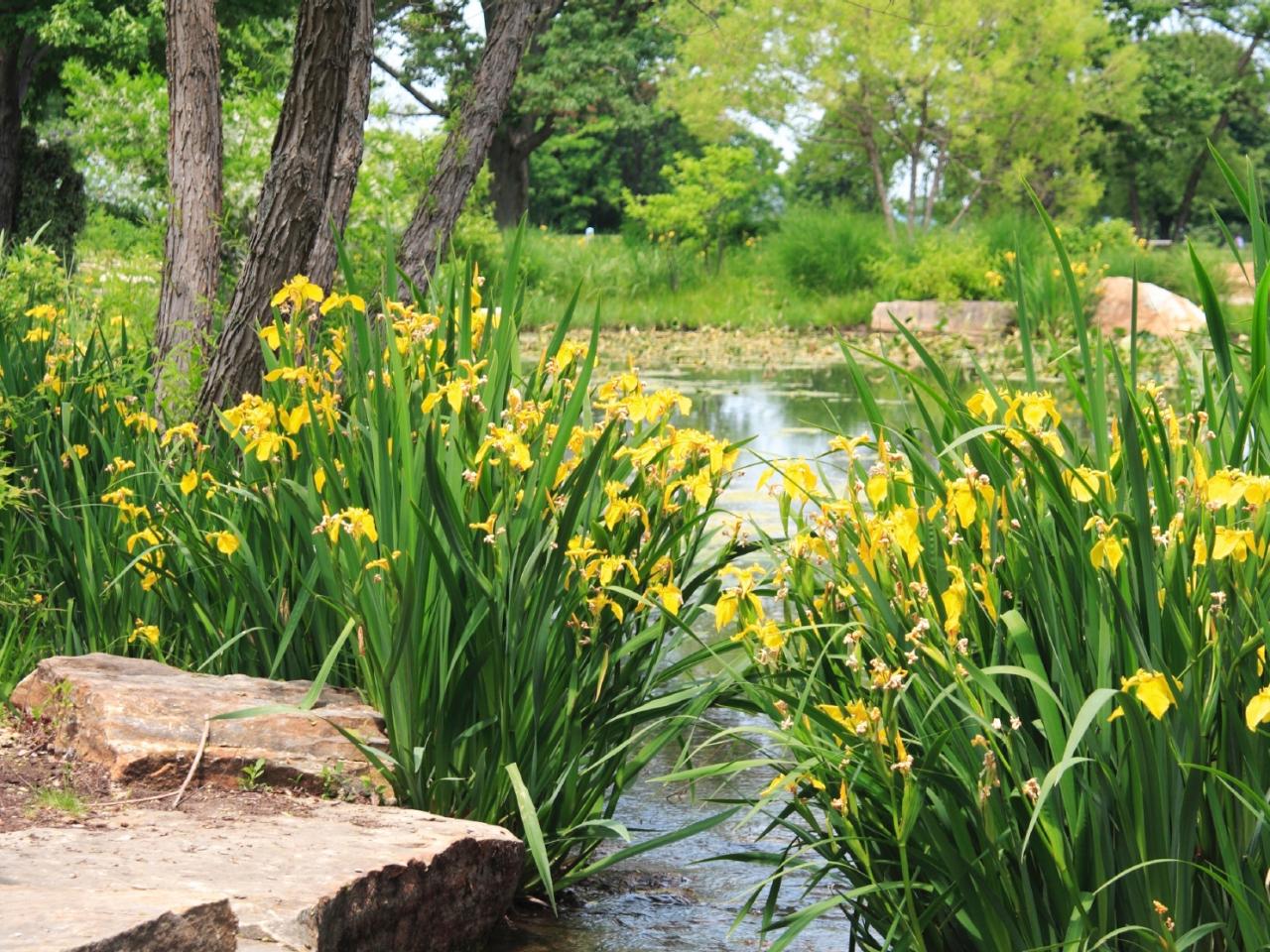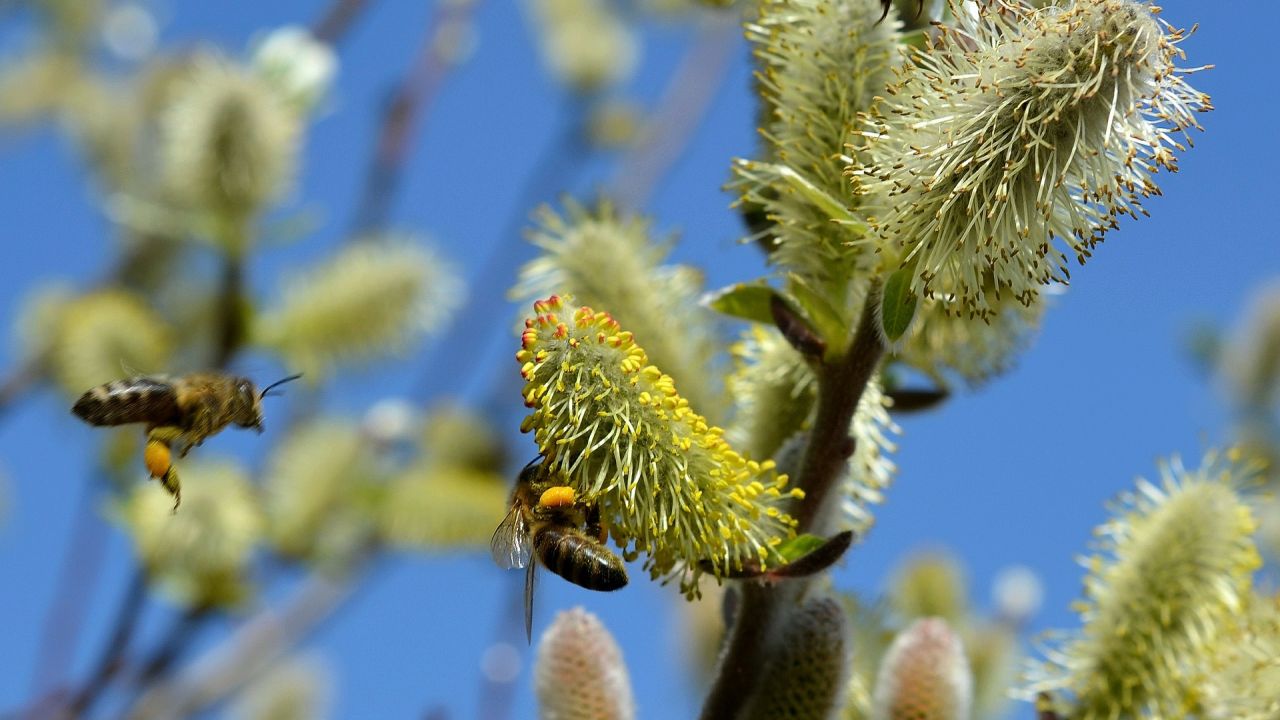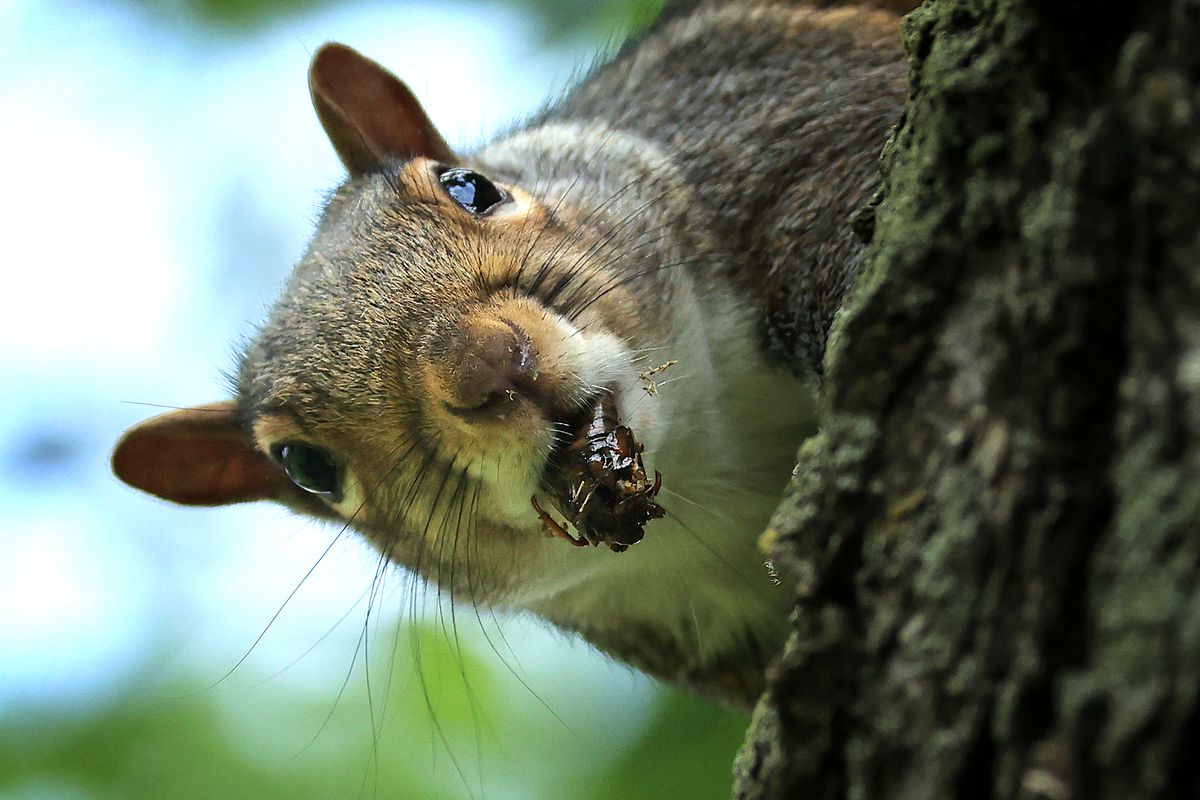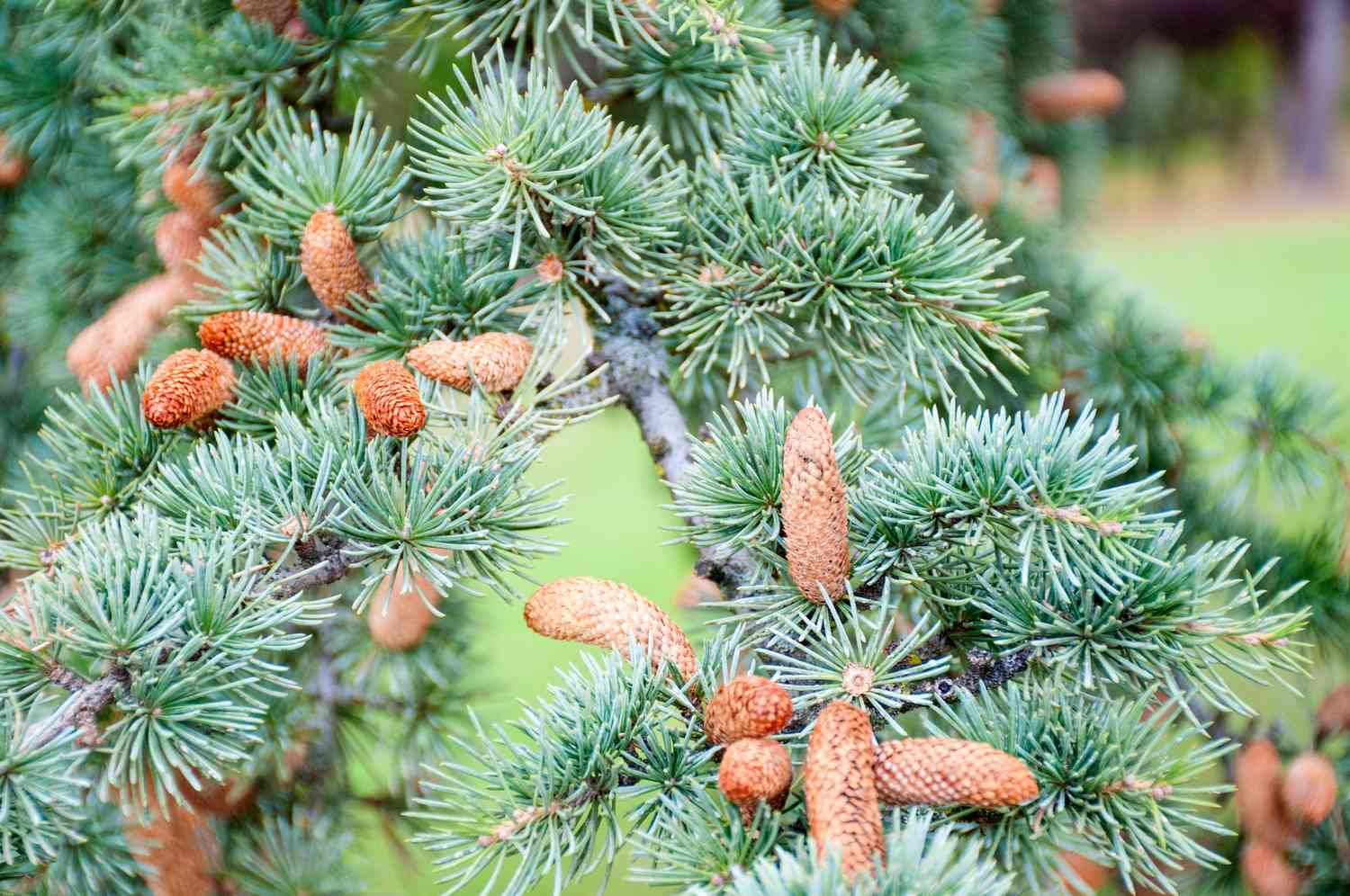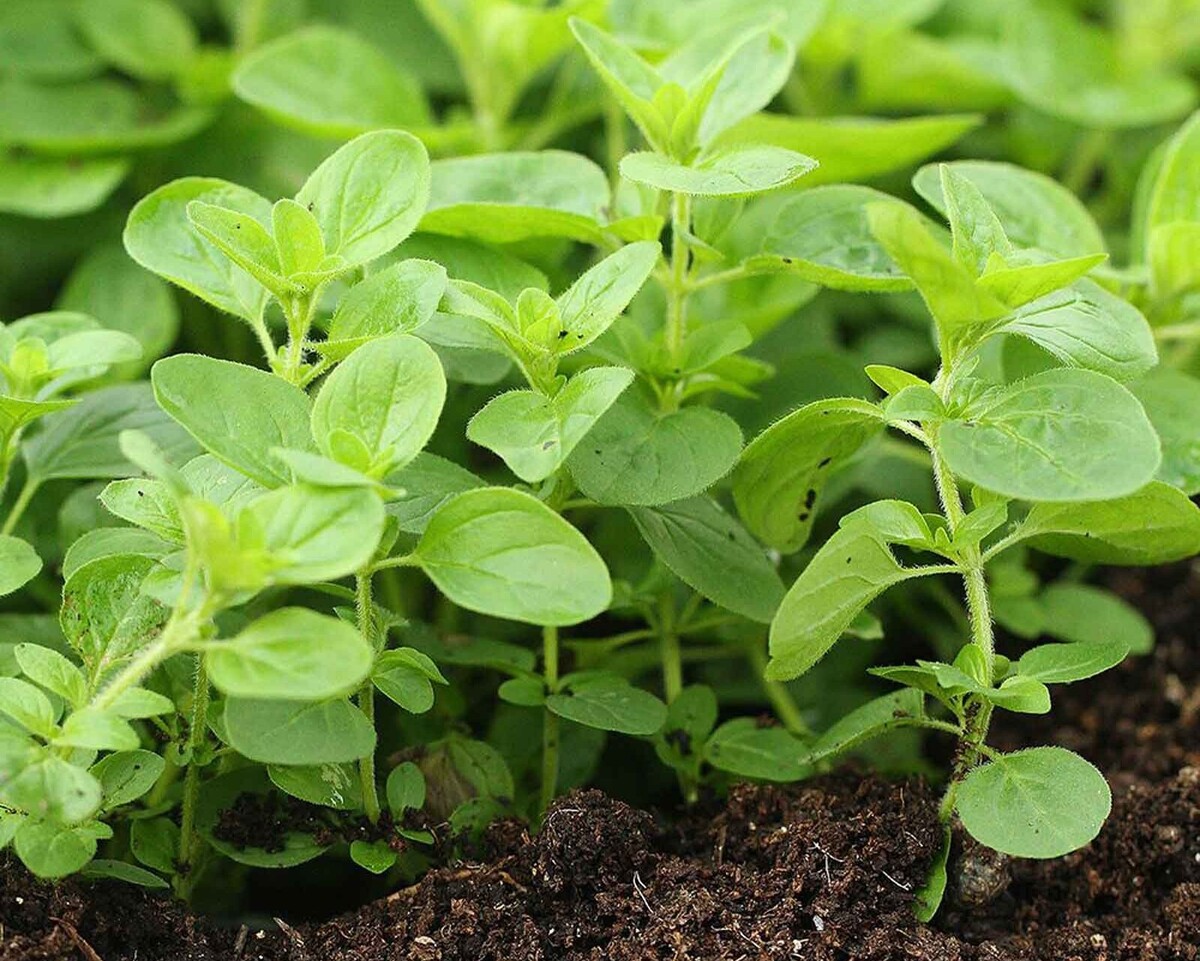Home>Gardening Basics>Understanding Soil>What Kind Of Soil Do Blueberries Like


Understanding Soil
What Kind Of Soil Do Blueberries Like
Published: February 13, 2024
Discover what kind of soil blueberries thrive in and how to understand soil for optimal growth and harvest.
(Many of the links in this article redirect to a specific reviewed product. Your purchase of these products through affiliate links helps to generate commission for Chicagolandgardening.com, at no extra cost. Learn more)
Table of Contents
- Introduction
- The Importance of Soil for Blueberries
- Understanding Blueberry Soil Requirements
- Soil pH for Blueberries
- Soil Texture for Blueberries
- Soil Drainage for Blueberries
- Organic Matter in Blueberry Soil
- Recommended Soil Amendments for Blueberries
- Mulching for Blueberry Plants
- Maintaining Healthy Soil for Blueberries
- Conclusion
Introduction
When it comes to growing blueberries, one of the most critical factors for success is the type of soil you use. Blueberries have specific soil requirements that must be met in order to thrive and produce an abundant harvest. Understanding the unique needs of blueberry plants and providing them with the right soil conditions is essential for their overall health and productivity.
Blueberries are not like your average garden plant. They require a specific type of soil that is rich in organic matter, well-draining, and has the right pH level. The proper soil composition ensures that blueberry plants receive the necessary nutrients, water, and oxygen they need to grow and bear fruit.
In this article, we will explore the importance of soil for blueberries and delve into the specific soil requirements that are crucial for their successful cultivation. From pH levels to soil texture and drainage, we will discuss the key factors you need to consider when preparing the ideal soil environment for your blueberry plants. Additionally, we will explore the significance of organic matter and recommended soil amendments for blueberries, as well as the importance of mulching to maintain healthy soil conditions.
If you are passionate about growing blueberries or are considering starting your own blueberry garden, understanding the soil requirements is essential in ensuring a bountiful harvest. So, let’s dive in and explore the fascinating world of blueberry soil!
The Importance of Soil for Blueberries
The soil is the foundation of any successful garden, and this holds true for blueberries as well. The quality and composition of the soil directly impact the growth and productivity of blueberry plants. Understanding the importance of soil for blueberries is key to creating optimal growing conditions and reaping the rewards of a bountiful harvest.
One of the primary reasons why soil is crucial for blueberries is its role in providing essential nutrients to the plants. Blueberries have specific nutrient requirements, including nitrogen, phosphorus, potassium, and various micronutrients, to support their growth and fruit development. A nutrient-rich soil ensures that blueberry plants have access to these vital elements, promoting healthy foliage, strong root development, and abundant fruit production.
The pH level of the soil is another critical factor that affects blueberries’ ability to thrive. Blueberries prefer acidic soil with a pH ranging from 4.5 to 5.5. This acidic environment allows the plants to absorb nutrients efficiently and helps to prevent nutrient deficiencies. Adjusting the soil pH to the appropriate range is essential for ensuring optimal nutrient uptake and overall plant health.
Soil texture also plays a significant role in blueberry cultivation. Blueberries prefer loamy soils that are well-draining and have good water-holding capacity. Sandy or clay soils can be problematic for blueberries, as they may retain too much water or become compacted, restricting oxygen flow to the roots. The right soil texture allows for adequate root development, proper water drainage, and sufficient aeration.
Another crucial aspect of soil for blueberries is its drainage capability. Blueberries require well-draining soil to prevent waterlogged conditions, as excessive moisture can lead to root rot and other diseases. Good drainage ensures that water moves away from the root zone, minimizing the risk of water-related issues and promoting a healthy root system.
Furthermore, the presence of organic matter in the soil is essential for blueberry plants. Organic matter improves soil structure, promotes beneficial microbial activity, and enhances nutrient retention. It also aids in moisture management and provides a steady release of nutrients over time. Incorporating organic matter into the soil through compost, leaf mold, or well-rotted manure helps create an ideal growing environment for blueberries.
Understanding the importance of soil for blueberries enables gardeners to make informed decisions when it comes to soil preparation and maintenance. By providing the right soil conditions, blueberry plants can grow vigorously, produce abundant berries, and display optimal health. With the foundation of healthy soil, you set the stage for a successful blueberry garden.
Understanding Blueberry Soil Requirements
Blueberries have specific soil requirements that must be met to ensure their optimal growth and productivity. By understanding these soil requirements, you can create the ideal environment for your blueberry plants and set them up for success.
One of the primary considerations for blueberry soil is the pH level. Blueberries thrive in acidic soil with a pH range of 4.5 to 5.5. This acidic environment allows blueberry plants to absorb essential nutrients efficiently. If the soil pH is too high, nutrient deficiencies may occur, leading to stunted growth and poor fruit development. To determine the soil’s pH, you can use a pH testing kit or send a soil sample to a laboratory for analysis. If the pH level is too high, you can lower it by adding elemental sulfur or using acidifying fertilizers.
Soil texture is another important factor to consider when it comes to blueberries. Blueberries prefer well-draining soil with a loamy texture. Loamy soil provides a balance of water drainage and moisture retention, ensuring that the plants receive adequate moisture without becoming waterlogged. Sandy or clay soils, on the other hand, can be problematic as they may retain too much water or become compacted, restricting root development and oxygen flow. If your soil is sandy or clay-like, you can improve its texture by adding organic matter such as compost or peat moss.
Blueberries also require soil with good drainage. Poorly drained soil leads to waterlogged conditions, which can be detrimental to blueberry plants. Excessive moisture around the roots can lead to root rot and other diseases. To improve drainage, you can plant blueberries on raised beds or ensure that the planting area has proper slope to allow water to flow away from the plants. Amending the soil with organic matter can also help improve drainage by enhancing soil structure and water movement.
In addition to pH, texture, and drainage, blueberry soil also benefits from the presence of organic matter. Organic matter improves soil fertility, enhances nutrient availability, and promotes beneficial microbial activity. It also aids in moisture management and provides a steady release of nutrients over time. Adding organic matter, such as well-rotted compost, leaf mold, or well-rotted manure, to your blueberry soil improves its overall quality and creates a nutrient-rich environment for your plants.
Understanding the specific soil requirements of blueberries is essential for their successful cultivation. By providing the right pH level, soil texture, drainage, and organic matter content, you can create an optimal growing environment for your blueberry plants. With the right soil conditions in place, your blueberries will thrive, producing abundant berries with excellent flavor and nutritional value.
Soil pH for Blueberries
The soil pH is a crucial factor in blueberry cultivation as it directly affects the plant’s ability to access essential nutrients. Blueberries thrive in acidic soil conditions, with a pH range of 4.5 to 5.5. Understanding and maintaining the appropriate soil pH for blueberries is vital to their overall health and productivity.
Soil pH refers to the measurement of acidity or alkalinity on a scale of 0 to 14, with 7 being neutral. Values below 7 indicate acidic conditions, while values above 7 indicate alkaline conditions. Blueberries prefer acidic soil as it promotes optimal nutrient uptake and availability.
When the soil pH is within the desired range for blueberries, essential nutrients like nitrogen, phosphorus, and potassium are more readily available to the plants. In contrast, if the pH level is too high (alkaline), these nutrients can become chemically bound to the soil particles and become less accessible to blueberry plants. This nutrient imbalance can lead to stunted growth, nutrient deficiencies, and poor fruit development.
To ensure the ideal soil pH for blueberries, it is crucial to test the soil’s acidity regularly. Soil testing kits or laboratory analysis can provide accurate pH readings. If the pH is too high, techniques such as soil acidification can be employed to lower it to the optimal range for blueberries.
There are several methods to lower soil pH for blueberries. One common approach is to add elemental sulfur to the soil. Elemental sulfur reacts with soil microbes to produce sulfuric acid, which then lowers the pH over time. It is important to follow recommended application rates to avoid over-acidifying the soil.
Another method is to use acidifying fertilizers specifically formulated for blueberries. These fertilizers contain ammonium sulfate or sulfur-coated urea, which acidify the soil as they break down and release nitrogen. When applying these fertilizers, it is essential to follow the recommended dosage to prevent excessive nutrient buildup.
In addition to soil acidification, organic matter can also contribute to lowering soil pH. Adding organic amendments such as peat moss, pine needles, or well-rotted compost can gradually acidify the soil over time. Organic matter improves soil structure, enhances nutrient retention, and increases microbial activity, all of which are beneficial for blueberry plants.
Monitoring and maintaining the proper soil pH for blueberries is crucial for their overall growth and productivity. By ensuring an acidic soil environment within the optimal pH range, you provide blueberry plants with the right conditions to access essential nutrients and thrive. Regular soil testing and appropriate techniques for lowering soil pH will help you create a thriving blueberry garden.
Soil Texture for Blueberries
Soil texture plays a significant role in the success of blueberry cultivation. Blueberries prefer a specific soil texture that promotes proper drainage, root development, and nutrient availability. Understanding the ideal soil texture for blueberries and making necessary adjustments can ensure the optimal growth and productivity of your blueberry plants.
Blueberries thrive in soil with a loamy texture. Loam is a balanced soil texture that contains a mixture of sand, silt, and clay particles. This combination allows for proper water drainage and moisture retention, ensuring that blueberry plants receive adequate water while avoiding waterlogged conditions.
Sandy soils, which have larger, coarse particles, tend to drain too quickly, leading to water stress for blueberry plants. This can result in underdeveloped root systems and reduced nutrient uptake. Sandy soils also have lower water-holding capacity, which can lead to more frequent watering requirements.
On the other hand, clay soils, which have smaller, densely packed particles, can become compacted and poorly drained. This can lead to waterlogged conditions, restricting oxygen availability to the roots and potentially causing root rot. Clay soils also tend to retain excess moisture, which can increase the risk of fungal diseases.
To improve the soil texture for blueberries, it may be necessary to amend the soil with organic matter. Adding organic matter, such as compost, peat moss, or well-rotted manure, improves soil structure and water-holding capacity. Organic matter loosens compacted clay soils, allowing for improved drainage, aeration, and root development. It also aids in moisture retention in sandy soils, preventing excessive water drainage.
When incorporating organic matter into the soil, it is recommended to dig it in thoroughly to a depth of at least 6-8 inches. This ensures that the organic matter is evenly distributed throughout the root zone, allowing the blueberry plants to access its benefits. Additionally, organic matter helps improve nutrient availability and activity of beneficial soil microorganisms, creating a healthier soil environment for blueberries.
Soil texture affects not only drainage but also the ease of root penetration. Blueberry plants have shallow, fibrous root systems that need well-developed soil structure to expand and absorb water and nutrients effectively. A loamy soil texture provides the right balance of porosity, allowing roots to penetrate easily and explore a larger volume of soil. This promotes the overall health and growth of blueberry plants.
By understanding the significance of soil texture for blueberries and making the necessary soil amendments, you can create an optimal growth environment for your plants. Ensuring a loamy soil texture that allows for proper water drainage, moisture retention, and root development will contribute to the overall success and productivity of your blueberry garden.
Soil Drainage for Blueberries
Proper soil drainage is crucial for the successful growth of blueberries. Blueberries thrive in well-drained soil that allows excess water to pass through and prevents waterlogged conditions. Understanding the importance of soil drainage for blueberries and implementing appropriate measures will ensure the health and productivity of your blueberry plants.
Waterlogged soil can be detrimental to blueberries, as it leads to oxygen deprivation, root rot, and other diseases. When soil becomes saturated and water cannot drain effectively, it causes roots to suffocate and inhibits their ability to absorb nutrients. This can result in stunted growth, yellowing leaves, and a decline in overall plant health.
Soil drainage can be influenced by various factors, including soil composition, texture, and slope. Blueberries prefer soil with a loamy texture, which provides the right balance of drainage and moisture retention. Loamy soil allows water to flow freely through the particles while retaining enough moisture for the plants’ needs.
If your soil tends to be poorly drained, there are several measures you can take to improve the drainage for blueberries. One option is to plant blueberries in raised beds or mounds, which facilitate better water drainage and prevent water accumulation around the roots. Raised beds also provide a defined growing area where you can control soil amendments and ensure proper soil composition.
Ensuring adequate soil slope is another method to improve drainage. Planting blueberries in an area with a gentle slope allows excess water to flow away from the plants, preventing it from pooling around the root zone. If your garden lacks natural slope, grading the area or creating subtle berms can redirect excess water and enhance drainage.
Amending the soil with organic matter is also beneficial for improving the drainage of heavy or compacted soils. Incorporating compost, peat moss, or well-rotted manure into the soil helps loosen compacted particles, enhancing pore space and increasing water movement. Organic matter also aids in retaining moisture in sandy soils, preventing excessive drainage.
Regularly monitoring the soil moisture levels is essential for maintaining proper drainage for blueberries. Overwatering should be avoided, as it can lead to waterlogged conditions. Soil should be moist but not saturated. Installing a moisture meter or simply using your finger to assess soil moisture will help you determine when watering is needed.
By ensuring proper soil drainage, you create an environment that promotes healthy root development and overall growth of blueberries. Adequate drainage prevents water-related issues, such as root rot and nutrient deficiencies. By implementing appropriate measures to improve soil drainage, you set the stage for successful blueberry cultivation and a bountiful harvest.
Organic Matter in Blueberry Soil
Organic matter plays a critical role in blueberry soil, providing essential nutrients, improving soil structure, and promoting beneficial microbial activity. Incorporating organic matter into the soil is key to creating a nutrient-rich environment that supports the health and productivity of blueberry plants.
Organic matter refers to any decomposed plant or animal material that can be added to the soil. It includes materials such as compost, well-rotted manure, peat moss, and leaf mold. When organic matter is added to the soil, it gradually breaks down, releasing nutrients that are vital for plant growth.
In blueberry soil, organic matter acts as a natural fertilizer, supplying essential nutrients to the plants. It helps maintain a steady supply of nitrogen, phosphorus, and potassium, as well as various micronutrients. These nutrients are released slowly, ensuring a continuous source of nutrition for blueberry plants over an extended period.
Moreover, organic matter improves soil structure by increasing its ability to retain water and nutrients. It improves soil aeration and porosity, allowing roots to access oxygen, water, and nutrients more efficiently. Organic matter helps sandy soils retain more moisture, preventing rapid water drainage and reducing the need for frequent watering. In heavy clay soils, organic matter helps break up compacted particles, improving drainage and allowing roots to penetrate more easily.
Another benefit of organic matter is its ability to enhance the activity of beneficial soil microorganisms. These microorganisms break down organic matter further, releasing nutrients and creating a symbiotic relationship with blueberry plants. The microorganisms help suppress harmful pathogens, improve soil structure, and enhance nutrient availability, ultimately contributing to the overall health of blueberry plants.
When incorporating organic matter into blueberry soil, it is recommended to mix it thoroughly to ensure even distribution throughout the root zone. The organic matter can be added during soil preparation or as a top dressing around established plants. Applying a layer of organic mulch around blueberry plants can also help conserve soil moisture, suppress weed growth, and gradually decompose, adding organic matter to the soil over time.
Given the importance of organic matter, it is essential to replenish it regularly. A general guideline is to add organic matter to blueberry soil once or twice a year, depending on the level of decomposition. Implementing a composting system in your garden can provide a consistent supply of organic matter, reducing the need for external inputs.
By enriching blueberry soil with organic matter, you create a nutrient-rich, well-structured environment that promotes the growth and productivity of your plants. The addition of organic matter contributes to the sustainable and long-term health of your blueberry garden.
Recommended Soil Amendments for Blueberries
Proper soil amendments are essential for creating an optimal growing environment for blueberries. By incorporating specific amendments into the soil, you can enhance its fertility, nutrient content, and overall quality. Understanding the recommended soil amendments for blueberries will help you provide the necessary conditions for healthy and productive plants.
One of the primary soil amendments for blueberries is sulfur. Sulfur is used to lower the soil pH, creating the acidic conditions that blueberries thrive in. Adding elemental sulfur to the soil gradually reduces the pH over time as it reacts with soil moisture and microbes, releasing sulfuric acid. Regular soil testing will help determine the necessary sulfur application rates to achieve the desired pH range of 4.5 to 5.5 for blueberries.
In addition to sulfur, lime is sometimes used as a soil amendment for blueberries. Lime is used to raise the soil pH in instances where the soil is excessively acidic. However, it is crucial to note that blueberries prefer acidic soil, so the application of lime should only be considered if the pH is extremely low and below the desired range.
Another important soil amendment for blueberries is organic matter. Adding compost, well-rotted manure, peat moss, or leaf mold improves the soil’s fertility, structure, and water-holding capacity. Organic matter releases nutrients slowly over time, providing a steady supply of vital elements for blueberry plants. It also enhances moisture retention in sandy soils and improves drainage in clay soils, creating a balanced soil environment for optimal root development and nutrient uptake.
In some cases, blueberry-specific fertilizer blends can be used as soil amendments. These fertilizers are formulated with the specific nutrient requirements of blueberries in mind. They typically contain higher levels of nitrogen and lower levels of phosphorus and potassium, as blueberries have specific nutrient preferences. It is important to carefully follow the recommended application rates and schedule when using fertilizers to avoid nutrient imbalances or over-fertilization.
Soil amendments such as gypsum, which contains calcium and sulfur, can also be beneficial for blueberries. Gypsum helps improve soil structure, especially in clay soils, by reducing compaction and improving water movement and aeration. It also provides additional sulfur to help maintain the optimal soil pH range for blueberries.
When incorporating soil amendments, it is important to consider the existing soil conditions and follow recommended guidelines. Regular soil testing and analysis can provide valuable insights into the nutrient composition and pH levels, helping you decide on the appropriate soil amendments for your blueberry plants.
By utilizing recommended soil amendments for blueberries, you can optimize the soil conditions necessary for healthy and productive plants. Proper soil amendments provide the essential nutrients, pH balance, and moisture retention capabilities that blueberries require to thrive and produce a bountiful harvest.
Mulching for Blueberry Plants
Mulching is a beneficial practice for blueberry plants as it helps conserve soil moisture, suppress weed growth, regulate soil temperature, and improve overall soil health. By understanding the importance of mulching and implementing proper mulching techniques, you can enhance the growth and productivity of your blueberry plants.
One of the primary advantages of mulching is its ability to conserve soil moisture. Blueberries have shallow root systems that are susceptible to drying out, especially during hot and dry periods. By applying a layer of mulch around the base of the plants, you create a protective barrier that reduces water evaporation from the soil surface, helping to maintain consistent soil moisture levels for optimal plant growth.
Mulching also aids in weed suppression, which is crucial for blueberry plants. Weeds compete with blueberry plants for nutrients, water, and sunlight, potentially stifling their growth. By using a layer of mulch, weed growth is minimized as it blocks sunlight from reaching the weed seeds and prevents them from germinating. This reduces the need for manual weeding and decreases competition for resources.
Regulating soil temperature is another benefit of mulching for blueberries. Mulch acts as an insulating layer, helping to keep the soil cooler in hot summer months and warmer during colder periods. This temperature moderation prevents extreme fluctuations that can stress the plants, allowing them to maintain optimal growth and development throughout the growing seasons.
In addition to these benefits, mulching contributes to improved soil health for blueberry plants. As the mulch breaks down over time, it adds organic matter to the soil, enriching its fertility and structure. Organic matter enhances nutrient availability, promotes beneficial microbial activity, and improves soil texture and moisture retention.
When mulching blueberry plants, it is important to choose the right material. Organic mulches such as wood chips, straw, or compost are excellent choices as they break down slowly, releasing nutrients into the soil. These materials also create a favorable environment for beneficial soil microorganisms.
Apply a layer of mulch around the base of the plants, extending it out to cover the root zone. The ideal mulch depth is around 2 to 4 inches. Be careful not to pile the mulch directly against the stems or trunk of the plants, as this can create a moist environment that promotes rot and pest infestation. Leave a small gap between the mulch and the base of the plants to allow for proper air circulation.
Regularly replenish the mulch as needed to maintain the desired depth and to compensate for decomposition. Apply fresh mulch annually or as it breaks down over time to continue reaping the benefits of mulching for your blueberry plants.
By employing proper mulching techniques, you can create a favorable growing environment for your blueberry plants. Mulching conserves soil moisture, suppresses weeds, regulates soil temperature, and improves soil health. Incorporating mulching into your blueberry garden care routine helps support the overall vigor and productivity of your plants.
Maintaining Healthy Soil for Blueberries
Maintaining healthy soil is crucial for the long-term success of blueberry plants. Healthy soil provides the necessary nutrients, proper drainage, optimal pH levels, and ideal soil structure for sustained growth and productivity. By implementing key practices and monitoring soil conditions, you can ensure the ongoing health of your blueberry soil.
Regular soil testing is an essential step in maintaining healthy soil for blueberries. Soil tests help determine the pH level, nutrient content, and potential deficiencies in the soil. Based on the results, you can make informed decisions about soil amendments and fertilization to address any imbalances. Conduct soil tests at least once a year or as recommended by your local agricultural extension office.
Monitoring soil moisture is another important aspect of soil health maintenance. Blueberries prefer consistently moist but not waterlogged soil conditions. Overwatering can lead to root rot and other diseases, while underwatering can result in nutrient deficiencies and stunted growth. Use a moisture meter or check the soil by feel to ensure that moisture levels are adequate for your blueberry plants.
Incorporating organic matter into the soil is crucial for maintaining its health. Organic matter improves soil structure, enhances moisture retention, and provides a continuous supply of nutrients as it decomposes. Regularly add compost, well-rotted manure, or other organic amendments to replenish the organic matter content in the soil and promote a thriving soil ecosystem.
Mulching is a practice that helps maintain healthy soil conditions for blueberries. Apply a layer of organic mulch around the base of the plants, extending it across the root zone. The mulch helps conserve soil moisture, suppress weed growth, regulate soil temperature, and improve overall soil health. Regularly replenish the mulch to maintain the desired depth and ensure ongoing benefits for your blueberry plants.
Proper weed management is essential for preserving healthy soil conditions. Weeds compete with blueberry plants for nutrients, water, and sunlight. Regularly remove weeds manually or use organic weed control methods that do not harm the blueberry plants or soil microorganisms. By minimizing weed presence, you promote the optimal nutrient uptake and overall well-being of your blueberry soil.
Protecting the soil from erosion is another crucial factor in maintaining its health. Blueberry plants have shallow root systems that are susceptible to soil erosion caused by heavy rain or wind. Utilize erosion control measures like planting windbreaks, using ground covers, or adding organic mulch to prevent soil displacement and preserve the integrity of your blueberry soil.
Regularly monitoring the overall health of your blueberry plants is essential, as the condition of the plants can often reflect the health of the soil. Yellowing leaves, stunted growth, or poor fruit production may be indicators of nutrient deficiencies or imbalances in the soil. Promptly address any issues by adjusting soil amendments, fertilization, or pH levels to maintain a healthy soil environment for your blueberries.
By implementing these practices and being attentive to the needs of your blueberry soil, you can maintain its health and provide the optimal conditions for the long-term success of your blueberry plants. Healthy soil contributes to vigorous growth, abundant harvests, and a thriving blueberry garden for years to come.
Conclusion
Growing blueberries successfully starts with understanding the critical role that soil plays in their overall health and productivity. When it comes to blueberries, soil is more than just a medium to anchor their roots; it is the foundation that provides vital nutrients, regulates moisture levels, and influences factors such as pH and drainage. By understanding and meeting the specific soil requirements of blueberries, you can ensure their optimal growth and enjoy a bountiful harvest.
The importance of soil pH cannot be overstated for blueberries. Maintaining an acidic soil pH within the range of 4.5 to 5.5 is crucial for blueberries to access essential nutrients effectively. Adjusting the soil pH using sulfur or acidifying fertilizers helps create the acidic conditions blueberries require for optimal growth.
Soil texture and drainage are also fundamental factors to consider. Blueberries thrive in well-drained, loamy soil that promotes root development and prevents waterlogged conditions. Amending the soil with organic matter improves its structure, water-holding capacity, and nutrient availability.
The addition of organic matter to blueberry soil is paramount. Organic matter enriches the soil with essential nutrients, enhances microbial activity, and contributes to overall soil health. Regularly adding compost, well-rotted manure, or other organic amendments replenishes the soil’s fertility, creating an optimal environment for blueberry growth.
Mulching plays a vital role in maintaining healthy blueberry soil. Mulch conserves soil moisture, suppresses weeds, regulates soil temperature, and improves soil structure. By employing proper mulching techniques and regularly replenishing the mulch layer, you can create a favorable growing environment for blueberry plants.
Maintaining healthy soil for blueberries involves regular soil testing, monitoring moisture levels, and managing weeds and erosion. By staying proactive and addressing any soil imbalances or issues promptly, you can ensure the ongoing health, vitality, and productivity of your blueberry plants.
Now armed with the knowledge of blueberry soil requirements and best practices for maintaining healthy soil, you are well-prepared to cultivate a thriving blueberry garden. Remember to provide the right pH level, ensure proper soil texture and drainage, incorporate organic matter, and implement mulching and soil maintenance practices. By doing so, you can create the optimal soil environment for your blueberry plants to flourish and enjoy the sweetness of a successful harvest for years to come.
